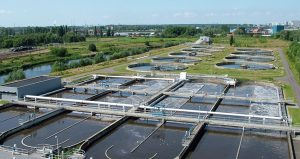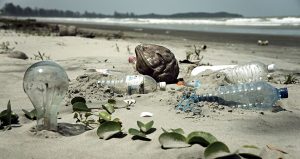Council confirms new wastewater directive

-
 Esther Rasenberg
Esther Rasenberg
Share article:
The Council adopted the revised Urban Waste Water Treatment Directive (UWWTD) the 5th of November. National ministers agreed with the proposal of the European Commission and the European Parliament. The new UWWTD will soon be published in the Official Journal of the EU. It will enter into force on the 20th day following publication. EU Member States will have up to 31 months to adapt their national legislation to the new rules.
In the new Urban Wastewater Directive secondary treatment to urban wastewater before discharge will become obligatory to all agglomerations of 1.000 population equivalent (p.e.) or more by 2035. Derogations will apply to Member States where the coverage of the collecting systems is very low and therefore would require significant investments. Member States that have joined the EU more recently and have already made more recent significant investments to implement the current directive (i.e. Romania, Bulgaria and Croatia) can also benefit from derogations.
Extra treatment
By 2039, EU countries will have to ensure the application of tertiary treatment, like the removal of nitrogen and phosphorus, in all plants covering 150.000 p.e. and above, and by 2045 in plants covering 10.000 p.e. and above. Quaternary treatment removing a broad spectrum of micropollutants will be mandatory for all plants over 150.000 p.e. (and over 10.000 p.e. based on a risk assessment) by 2045. Under the new Urban Waste Water Treatment Directive known viruses, emerging pathogens, chemical pollutants (including per- and polyfluoroalkyl substances or PFAS), microplastics and antimicrobial resistance will be strictly monitored.
Extended Producer Responsibility
The law also introduces Extended Producer Responsibility (EPR) for medicinal products for human use and cosmetic products. At least 80% of the costs of quaternary treatment have to be covered by producers, complemented by national financing.
Promote the reuse of treated wastewater
In the new Urban Waste Water Treatment Directive EU countries will also be required to promote the reuse of treated wastewater from all urban wastewater treatment plants where appropriate, especially in water-stressed areas.
Removing micropollutants
Producers of pharmaceuticals and cosmetics – the main source of micropollutants in urban wastewater – will need to contribute a minimum of 80% of the additional costs for the quaternary treatment, through an extended producer responsibility (EPR) scheme and in accordance with the ‘polluter pays’ principle.
Towards energy neutrality
The urban wastewater treatment sector could play an important role in significantly reducing greenhouse gas emissions and helping the EU achieve its climate neutrality objective. The new rules introduce an energy neutrality target, meaning that by 2045 urban wastewater treatment plants treating a load of 10 000 population equivalents and above will have to use energy from renewable sources generated by the respective plants.
Update procedure
The UWWTD was adopted in 1991. The objective of this directive was to protect the environment from adverse effects of wastewater discharges from urban sources and specific industries. The European Commission conducted an evaluation of the directive in 2019. It also showed that there were still sources of pollution that are not adequately addressed by the existing rules. These included pollution from smaller agglomerations and a broad spectrum of harmful micropollutants. Additionally, the evaluation highlighted the urban wastewater sector as one of the largest consumers of energy in the public sector. The European Commission submitted its proposal for a revised directive on 26 October 2022. The two co‑legislators reached an agreement on the final shape of the text on 29 January 2024.


















